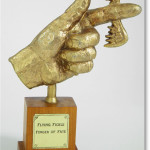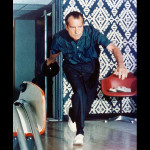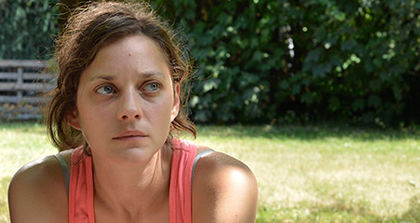Everyone has a set of favorite words. Even if you’ve never thought about it, you have a go-to collection that would represent pretty nicely in a wordcloud illustration. Even with kids and teens (allowing for some obvious weighting towards utterances such as the quotative like and whatevs<fn>Like totaly, like, whatevs.</fn>), there are just certain words that work, that ring, that roll off the tongue and end up becoming as much a part/reflection of your public identity as your choice of clothing, car, music, &c.
And so we observe our friends with their own style: some who regularly use quite as a modifier; others who would die rather than say utilize rather than use (or vice versa); and even some with a let-us-say narrow linguistic palate v. those who seem to have eaten a dictionary and logorrheacally spew synonyms and obscure references<fn>Geez, don’t you hate that?!</fn>.
Which brings us somewhat discursively to one of my long-time faves: discursive. I’ve always taken this to describe a style of speech or writing that trips along more or less aimlessly from point to point, an amble, rather than a march, toward some destination at which we shall inevitably arrive, albeit with some mild surprise/disappointment at the banality of it all.<fn>Kind of like that sentence.</fn> A great example is the classic shaggy dog story, of which, say, The Big Lebowski is the classic exemplar.<fn>From Wikipedia: “In its original sense, a shaggy dog story is an extremely long-winded anecdote characterized by extensive narration of typically irrelevant incidents and terminated by an anticlimax or a pointless punchline.” Loyal readers of the i2b blog likely experienced a frisson of recognition just now.</fn>
But I began to doubt my understanding of discursive, so I opened the dictionary with no little worry that I had been mis-using this word all these years. And lo and behold, what I found was this:
1. passing aimlessly from one subject to another; digressive, rambling
So far, so good. But then…
2. proceeding by reasoning or argument rather than intuition.
Well then. What we have here is a word that means both itself and its opposite, and vice versa. My excessive fondness for the word has been validated; it’s even better than I thought.
In honesty…most of the time my thoughts rattle around like a BB in a bucket, like a carrot in a bathtub, like a… Well, there I go again. Your Narrator often finds himself bouncing from pillar to post, often with a vague destination in mind, sometimes not, but always confident that the destination will be worth the journey.<fn>How we get there is where we’re going?</fn> So off I lurch, dictionary recently eaten.
And admittedly, I happen to love writers who begin in one place, proceed to the next logical checkpoint, and then veer off into pasta-knows-what twisty turns and digressions that lead one to think that either the narrator or the reader/listener has lost touch with reality, only to arrive at a conclusion that elicits a “holy shit, where did that come from?” reaction alongside a recognition that there was really no other possible destination, all things considered, though we never could have guessed at the outset.<fn>Let’s consider this a codicil and corrolary to one of the ruling precepts of the blog, that being: resolved endings suck.</fn> Consider the explorations of Waterloo and the Paris sewers in Les Miserables.<fn>The novel, not the musical. I can’t even bring myself to watch it.</fn> Consider James Burke’s fantastic excursions in the TV series Connections; the flights of fancy in Proust and Wallace and Barthelme for example, and, again, Lebowski. All of the things that appear to be random and discursive turn out to be…well, given definition #2, they actually end up being discursive in both senses of the word. Random? Maybe not quite so much as it first appeared.
Are your Narrator’s discursions actually random, or do they instead conform to some deeper pattern of rational argument that could not be clearly revealed through a more formal A+B=x sort of explication? Consider who you/we are asking? What kind of rigorously logical answer can you possibly expect from someone who just danced you through 650 words to get to the question in the first place?
And furthermore: What in perfectly fresh hell is a picture of Satan’s Dick doing at the top of this ramble?
Think about it people. This is a post about discursion, which is exemplified by the shaggy dog story, which is in turn exemplified by The Big Lebowski, which is itself all about bowling. And discursion. And some other stuff, too, but do we have to spell it out?
Wheels within wheels, my friends. Wheels within wheels.




